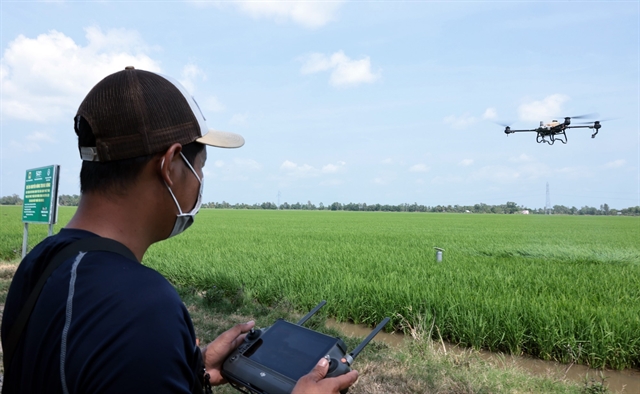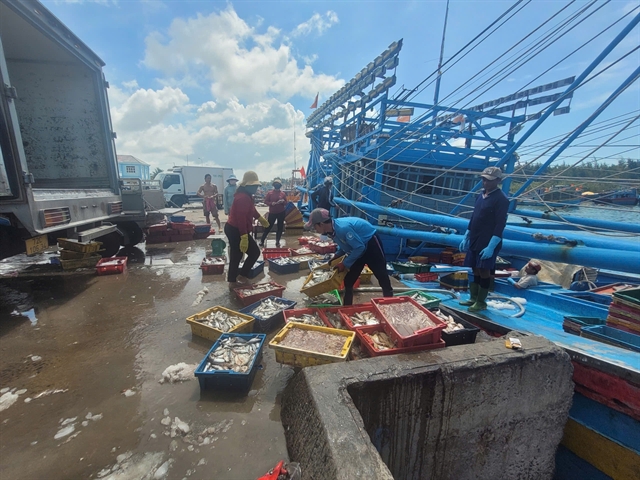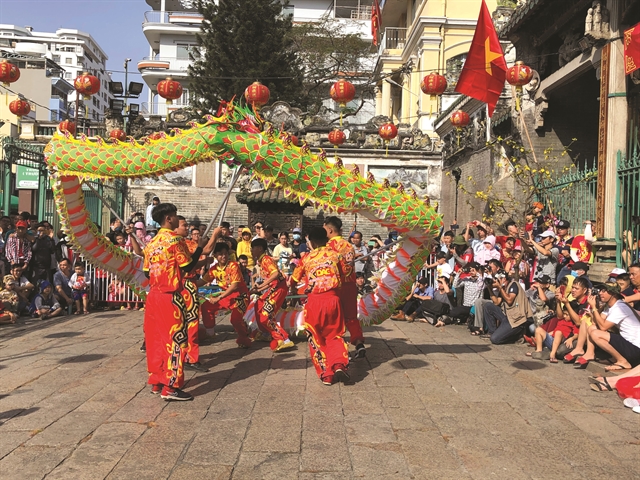 Society
Society

 |
| Unloading seafood from an offshore fishing vessel at Bình Châu fishing port in HCM City. VNA/VNS Photo |
HCM CITY – As Việt Nam prepares for the European Commission’s (EC) inspection in November, HCM City is intensifying efforts to combat illegal, unreported and unregulated (IUU) fishing.
The visit will play a decisive role in determining whether the European Union will lift the “yellow card” warning on Vietnamese seafood — a measure that has long affected tens of thousands of fishermen and exporters nationwide.
At a press briefing last week, Phạm Thị Na, deputy director of the city Department of Agriculture and Environment, said the city had launched a “peak month of action against IUU fishing” with concrete and practical measures to help the country achieve the goal of removing the yellow card.
The city currently has around 4,900 fishing vessels, of which many operate regularly in southern waters.
Effective fleet management, therefore, plays a crucial role in fulfilling national commitments to legal and sustainable fisheries.
During this campaign, the Fisheries and Fishery Surveillance Sub-department is working with coastal wards and communes to review the entire fleet, removing from the system any boats that are damaged, abandoned or sold to other provinces.
All active vessels are now registered and managed under the national fisheries database, which allows real-time monitoring of operations.
This enables EC inspectors to verify data remotely, ensuring transparency and traceability.
“Every activity of each vessel can now be tracked and verified,” Na said.
The city’s nine fishing ports have all been equipped with the electronic Catch Documentation and Traceability system (eCDT), which monitors vessel arrivals and departures, catch volumes, and the origins of raw materials supplied to processing plants.
All vessels 15 metres or longer must submit electronic logbooks and undergo cross-checks by port authorities, border guards and fishery inspectors.
“Fishing ports are now more than mooring places — they are data verification stations,” Na said.
“With digital records, we can prove the legal origin of seafood, a key condition for the EC to consider lifting the yellow card.”
At sea, two shore-based monitoring stations — one managed by the Border Guard and the other by the Fisheries Surveillance Sub-department — operate 24 hours a day to track all vessels through the vessel monitoring system (VMS).
When a vessel loses signal, rapid-response teams immediately alert the owner and local authorities to restore connectivity, preventing attempts to cross into foreign waters — a major cause of previous IUU violations.
The results have been clear. The number of the city's vessels detained by foreign authorities has fallen sharply from 23 cases in 2020 to eight in 2022, two in 2023, and only one in 2024.
Since August 2024, no vessel from the city has been detained.
“This is a positive signal, showing the effectiveness of monitoring and the growing compliance among fishermen,” Na noted.
Since 2024, all border guard posts and fishing ports have been equipped with computers, GPS devices and eCDT software, ensuring all seafood products are recorded digitally from harvesting to processing and export.
Each vessel’s electronic logbook is linked to the Ministry of Agriculture and Environment’s national database, providing verifiable proof of the legal catch — a prerequisite for exports to the EU market.
According to the department, strict law enforcement is the most decisive factor in the EC’s assessment.
Every suspected violation is investigated and penalised. To date, HCM City has resolved almost all cases with signs of wrongdoing, with only 11 vessels still under verification aftering losing connection.
The city is home to more than 50 seafood processing and exporting enterprises, employing around 30,000 workers.
Removing the yellow card would restore access to the lucrative European market, reduce inspection costs, and enhance competitiveness.
It would also stabilise fishermen’s livelihoods, boost exports, and strengthen Việt Nam’s seafood reputation abroad.
Beyond economic benefits, Na stressed that the city’s anti-IUU actions contribute to safeguarding the nation’s maritime sovereignty.
“Our efforts do not stop after this peak month,” she said. “These measures will be maintained and upgraded long term. Electronic management, vessel monitoring, traceability and law enforcement will continue to be improved and integrated across agencies.”
She added that compliance with fishing regulations is not just to satisfy EC inspectors but to ensure the sustainable development of Việt Nam’s fisheries and their responsibility towards the environment and international community.
Maintaining and upgrading digital monitoring and traceability systems require an annual investment of about VNĐ35 billion (US$1.4 million), but the city officials consider it essential for the sector’s long-term integrity.
With determination from both authorities and fishermen, HCM City is setting an example in the national effort to remove the yellow card and secure a sustainable future for Việt Nam’s fisheries sector. – VNS



.jpg)
